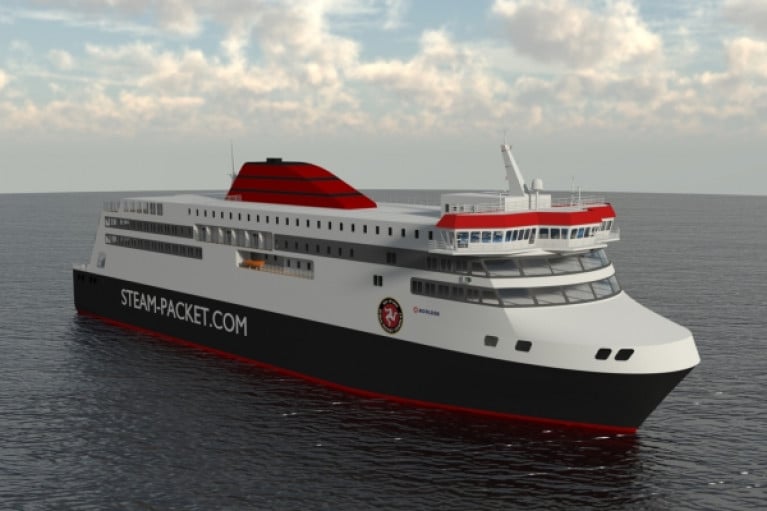Displaying items by tag: Ferry name chosen
Manxman is the name chosen for the new Isle of Man Steam Packet Company ferry following an online public consultation.
The announcement follows months of deliberation by the Manx ferry company, which in October announced a shortlist of four potential names – Manxman, Mona’s Isle, Manx Maid and King Orry - all of which are traditional Steam Packet Company vessel names.
Throughout November, the public had the opportunity to voice their preference for the name of the new purpose-built ferry as Afloat reported is to be built in Asia. The newbuild due in 2023 is to be flagged and registered under the Isle of Man Register and will replace the Ben-My-Chree.
More than 7,500 people took the opportunity to suggest their favourite of the shortlisted names. Out of these, it was Manxman and King Orry that emerged as the most popular choices by a considerable margin. These two favourites were then considered further by the company and the name Manxman was chosen. This will mark the third ship in the Company’s history to bear the name, the last a turbine steamer launched in 1955.
Isle of Man Steam Packet Company Chief Executive Mark Woodward said: ‘After much thought and deliberation, we are excited to announce the name of our bespoke, custom-built vessel. King Orry and Manxman were both clear favourites, however, with more than 65 years having passed since the launch of our last ship called Manxman - compared to just 20 years since we named a vessel King Orry, we feel that now is the right time for the return of Manxman. It is a name that embodies the Manx spirit, signifies national pride and is suitably enduring for a vessel that will take the Steam Packet Company into its 200th year and beyond. She will be a fine addition to our fleet.
‘We would like to thank everyone who took the time to express their views on the four shortlisted names. It was pleasing to see such interest and, of course, to take the public’s views into consideration when making the final decision - something we thought very important.’





























































